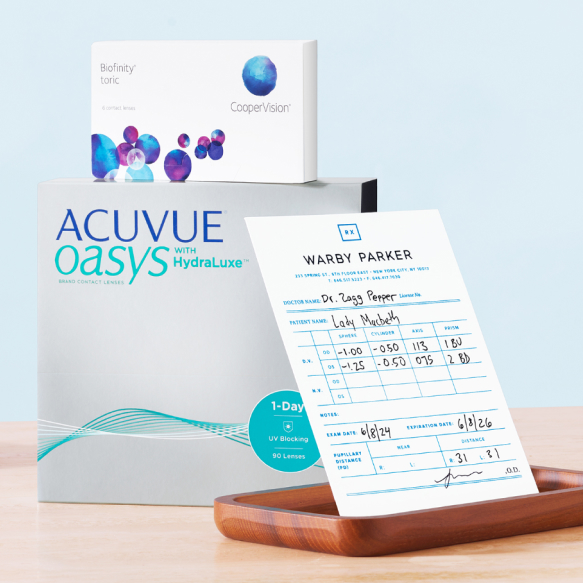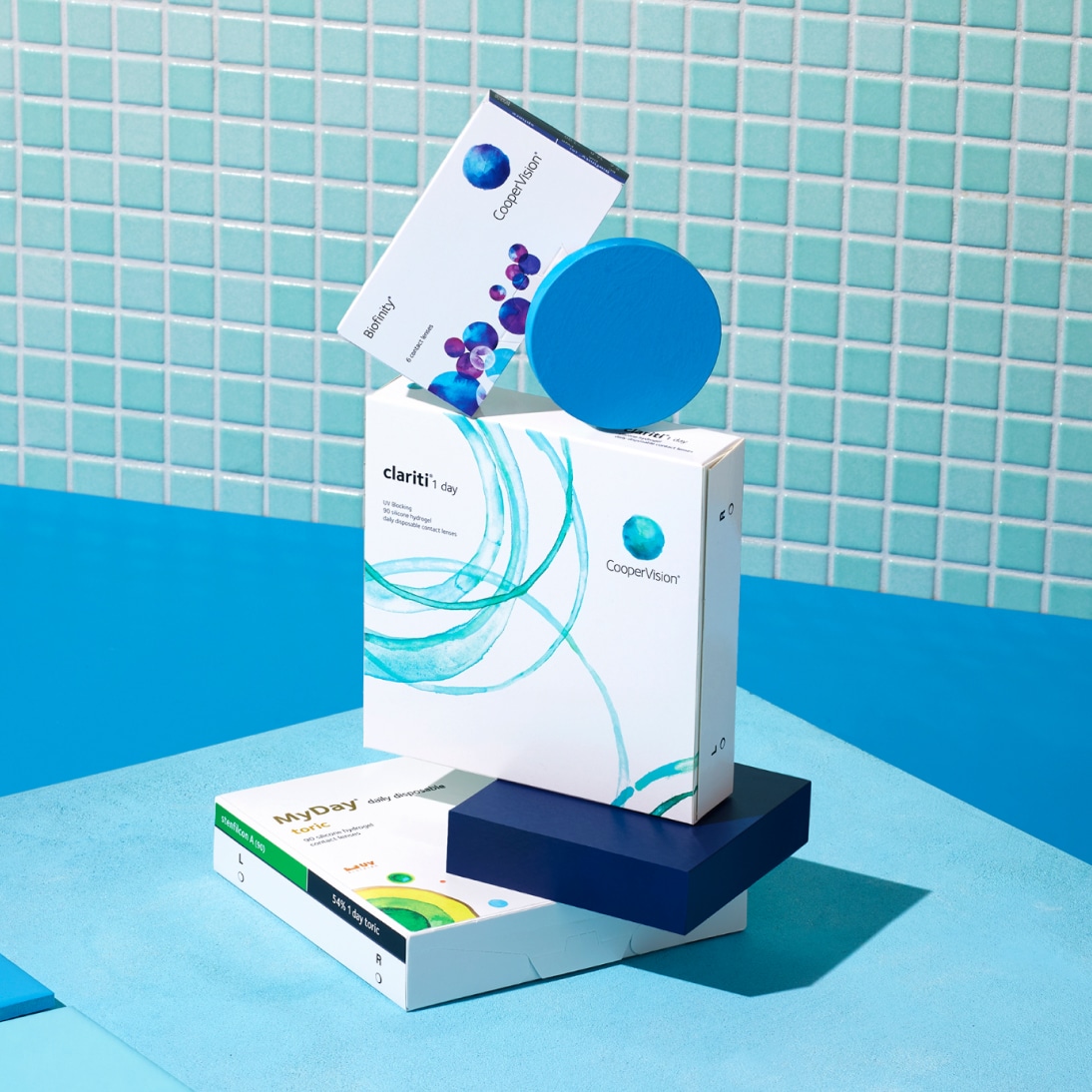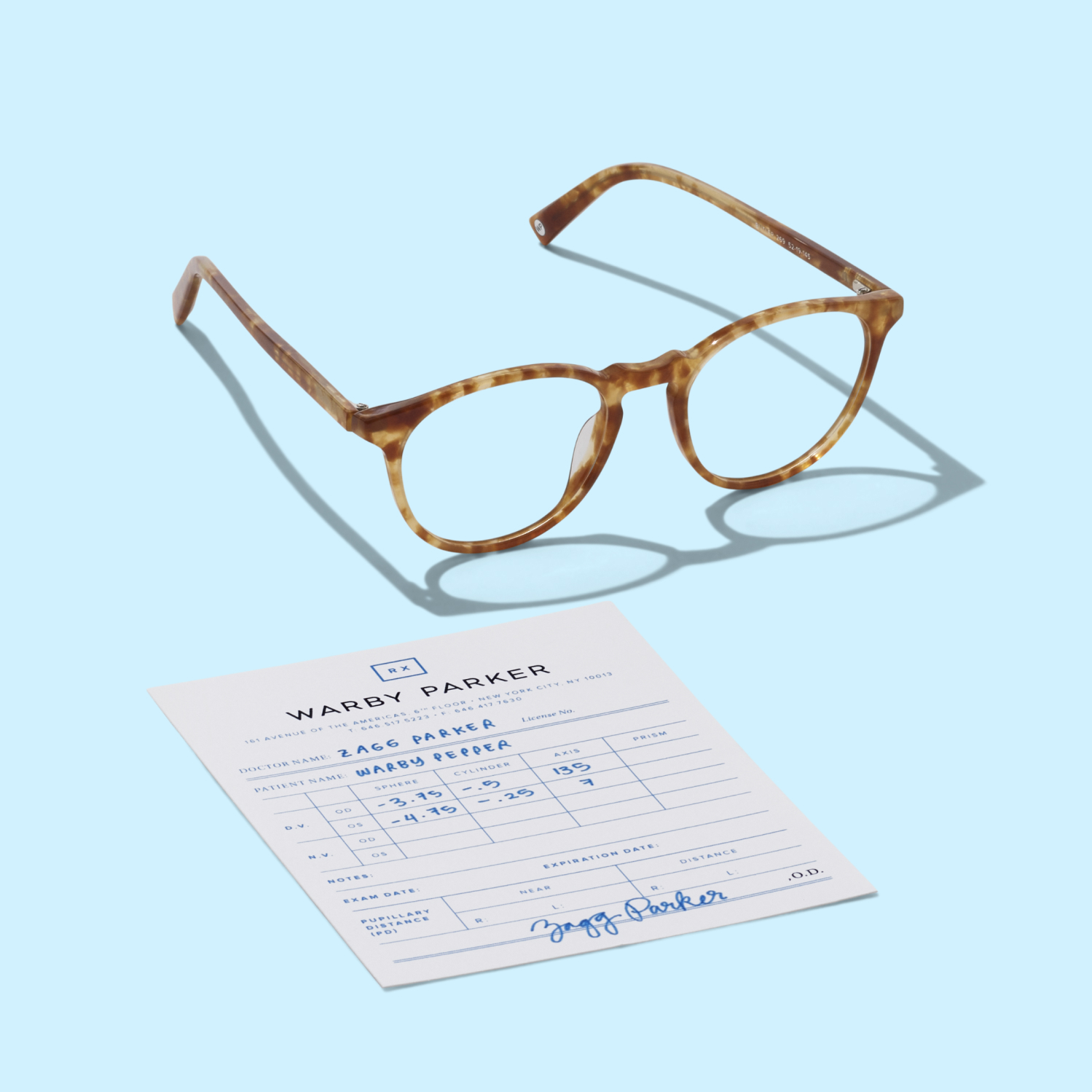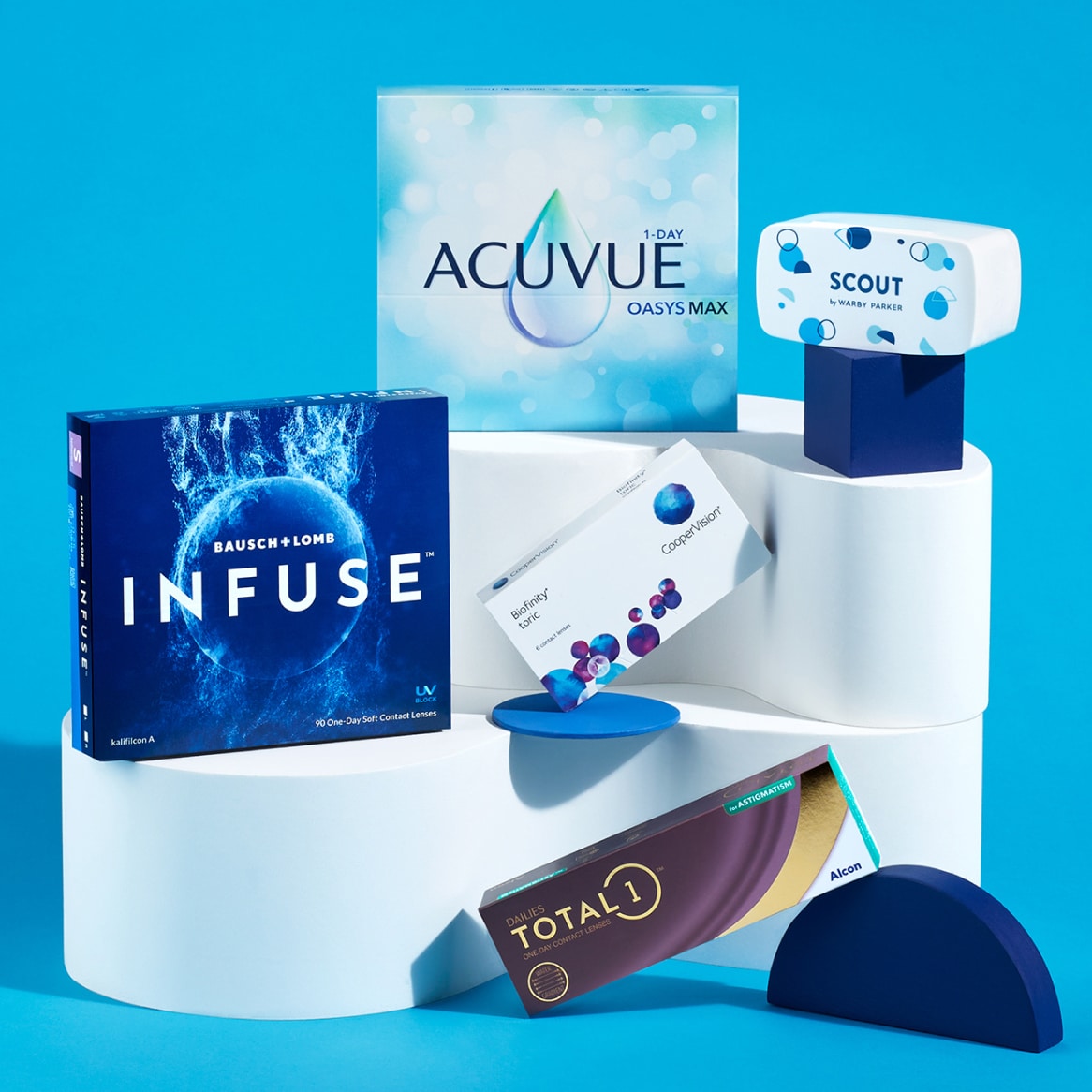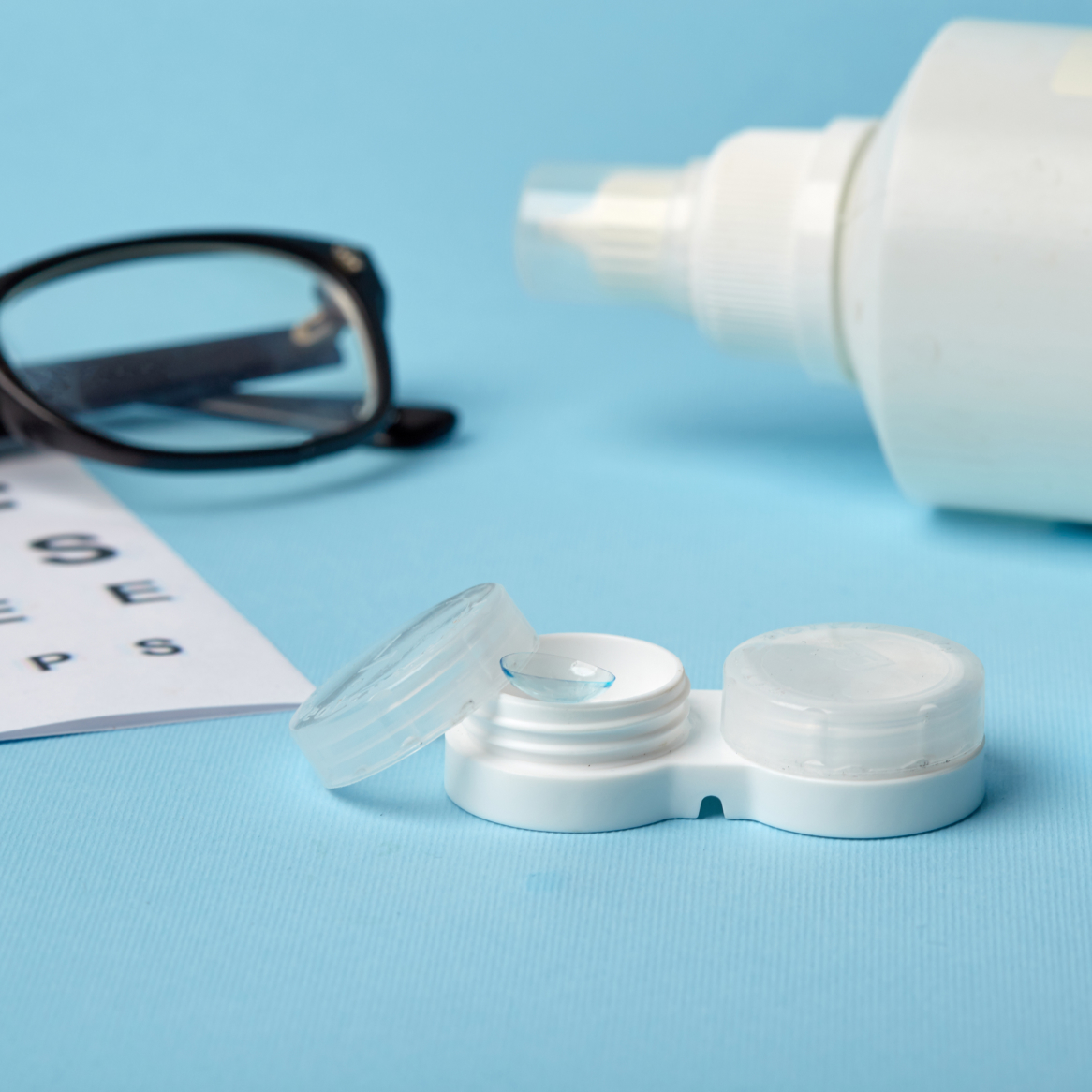Yes. If you wear contact lenses, even if you’ve just started, you should get a contact lens exam every year.
An annual contact lens exam, which is often an add-on to a comprehensive eye exam, is a must for anyone who wears contact lenses—or wants to start. This goes both for people who use contacts for vision correction and those who wear color contacts just for cosmetic purposes.
Let’s explore exactly what a contact lens exam is, why it’s important to have one every year, and the risks if you don’t.
What To Expect at a Contact Lens Exam
A contact lens exam is an eye evaluation for people who want to wear contacts or already do.
During your appointment, an optometrist or ophthalmologist evaluates whether you’re a candidate for wearing contact lenses. If the answer is yes, the doctor will also determine the best type and size of contacts for you.
If you already wear contacts, a contact lens exam lets your eye doctor see if updates or changes to your prescription are needed—or if something is amiss and needs attention.
Contact Lens Exam vs. Comprehensive Eye Exam
During most comprehensive eye exams, your eye doctor checks your vision and thoroughly screens your eyes for disorders and diseases. A contact lens exam (an eye exam for contacts) is generally a supplement to a comprehensive eye exam, adding contact-specific steps. Often, the two exams happen at the same appointment.
So what can you expect at a contact lens exam? The steps can vary from doctor to doctor and may depend on whether you’re a current lens wearer. But they generally include:
- A consultation with your eye doctor to discuss your needs and preferences—such as the type of contacts (daily disposable, monthly contacts, etc.)
- Eye measurements, including the curvature of your eyes and the size of your pupil
- An evaluation of your tear film to determine:
- If your eyes are dry (which can affect the type of lens your doctor prescribes)
- If there are any contraindications to wearing contact lenses
- If the current contact lenses are causing any issues
- A contact lens fitting
- Instructions for cleaning and caring for your contacts
- Practice putting contacts in and taking them out
If you’re getting contact lenses for the first time—or you’re getting a new type of contacts—your doctor may want you to return in a week or two for a follow-up visit. This lets them make sure your lenses fit well, are comfortable, and are performing as expected.
Why You Need an Annual Contact Lens Exam
You probably know that a regular comprehensive eye exam is a critical part of maintaining your vision and health. But a yearly eye exam for contacts is important too. Reasons include:
- To make sure you’re seeing clearly through your contacts
- To update your prescription, if needed
- To check the fit of your lenses
- To examine whether your contacts negatively affect your eyes
- To review your eye doctor’s recommendations for lens care and wear time
- To explore whether a different type of lens may be better for you and your lifestyle
- To answer your questions
Risks of Not Having a Contact Eye Exam Every Year
Skipping out on your annual contact lens exam carries several risks that range from not seeing well in the future, to being uncomfortable in your contacts, to developing a serious eye issue.
If you don’t get a contact lens exam, you run the risk of not wearing the proper prescription. That means potentially not having the correct lens measurements and not wearing the type of contact lenses that’s best for you.
For instance, if you develop astigmatism or presbyopia, you may need toric (for astigmatism) or multifocal contacts. Or if your contacts have been causing redness and irritation, you may need contacts for dry eyes.
An eye exam for contact lenses can be an important preventive measure too. Even for people who are diligent about hygiene, wearing contact lenses increases the possibility of developing a host of eye issues. These include a host of eye issues, such as eye infections, corneal abrasions (scratched cornea), and cornea hypoxia (when the cornea doesn’t get enough oxygen).
At your contact lens exam, your eye doctor will look for any issues and may detect a condition or early signs of one. They can review with you how to care for your contact lenses to lower your risk of complications, like washing your hands before handling the contact lenses, not swimming or showering with contact lenses in, and not sleeping with the contact lenses in your eyes.
Improper care of your contact lenses may increase your risk of infection and can endanger your eye health and even your vision.
What if You Only Wear Contacts Occasionally?
Even if you only wear contacts sometimes, it’s a good idea to have an annual eye exam for contacts. No matter how often you wear your contact lenses, they can impact your ocular health. And chances are, you want to be sure that these lenses make your vision as sharp as possible, and that they fit and are the right type of lenses for your needs.
Do You Need a Contact Lens Prescription if You Have One for Glasses?
Yes. A contact lens prescription isn’t the same as an eyeglass prescription. Contact lenses are medical devices that come in different sizes, shapes, and materials. Contact lenses sit on the surface of your eye instead of being positioned in front of your eyes.
Contact lens prescriptions generally expire in one or two years, depending on the state you live in. If your contact lens prescription hasn’t changed but has expired, you’ll need a renewed prescription to purchase contacts—whether online or at a brick-and-mortar retailer.
(If you’re seeing clearly with your current prescription, you may be able to renew it online. Take our Virtual Vision Test.)
Contact lenses are FDA-approved medical devices that require a prescription. Even if you’re getting “plano” contact lenses without any vision correction (like, only to change the color of your eyes), you’ll need a prescription from an eye doctor.
Never get contact lenses without a prescription—doing so is very dangerous for your eyes. Unregulated lenses, contacts sold by a disreputable retailer, or contacts that are improperly fitted can cause injury or vision loss.
Does Vision Insurance Cover Contact Lens Exams?
Many vision insurance policies fully or partially cover the cost of a contact lens eye exam. Some vision plans require a small co-pay. You can also usually use funds from your FSA or HSA (flexible spending account or health savings account) to cover any out-of-pocket expenses a contact lens eye exam may incur.
To find out the details of your insurance benefits, FSA, or HSA, contact your plan administrator.
An Eye Exam for Contacts Is a Must
Clear eyesight probably contributes immensely to your quality of life. And eye health is a major pillar of your wellbeing. So why gamble with your eyes? Getting an annual contact lens exam and comprehensive eye exam is essential to preserving your eyesight and your overall health.

